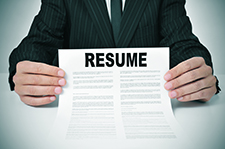 Do you have a job interview soon? Have you prepared for the big day by reviewing popular interview questions, researching the company, cleaning up your resume, and gathering your references? All of those steps are important parts of ensuring a successful interview. But, what should you avoid once you’re in the job interview?
Do you have a job interview soon? Have you prepared for the big day by reviewing popular interview questions, researching the company, cleaning up your resume, and gathering your references? All of those steps are important parts of ensuring a successful interview. But, what should you avoid once you’re in the job interview?
Survey Reveals Mistakes
In a new survey from Express Employment Professionals, business owners shared several real-life mistakes job seekers have made in interviews. These examples include:
- Answering the phone
- Asking to step out for a smoke break
- Asking at the end of the interview, “What am I interviewing for?”
- Badmouthing their former employer
- Bringing a baby, pet, or parent
- Chewing tobacco and/or vaping
- Falling asleep
- Wearing pajamas
- Listing their own cell phone number and pretending to be their own reference
- Listening to headphones
Among those employers, 61% agree that the worst thing an interviewee can do is answer a phone call during the interview. Other answers included arriving late, drinking alcohol, or lying about their experience.
“Your interviewer should have your undivided attention,” said Bob Funk, CEO of Express. “If you can’t make it through an interview without answering a phone, texting a friend, or smoking a cigarette, I can pretty much guarantee you that you won’t be landing the job.”
Clever Tricks From Interviewees
The survey also revealed the most clever ways job seekers have submitted resumes and attempted to land jobs. Those responses include:
- Typing the resume like a movie script, menu, radio commercial, or video presentation
- Delivering the resume with a box of doughnuts
- Delivering the resume in a box via a mail carrier
- Bringing a portfolio and giving a presentation of their work
- Creating a business plan
- Providing referrals from someone known to the employer
- Bringing lists of potential clients and ideas for the position
According to Bob Funk, “When you’re competing to win a new job, it can pay to be creative. The ability to stand out can be the difference between a job offer and a rejection, provided you’re standing out for the right reasons.”
What are some clever ways you’ve landed the job? Let us know in the comments section below!
Movin’ On Up is brought to you by Express Employment Professionals.





 Scoring a job interview with a company you’re excited to work for is always a positive thing. But, you still may experience the famous mix of anticipation and dread that goes along with an interview.
Scoring a job interview with a company you’re excited to work for is always a positive thing. But, you still may experience the famous mix of anticipation and dread that goes along with an interview.